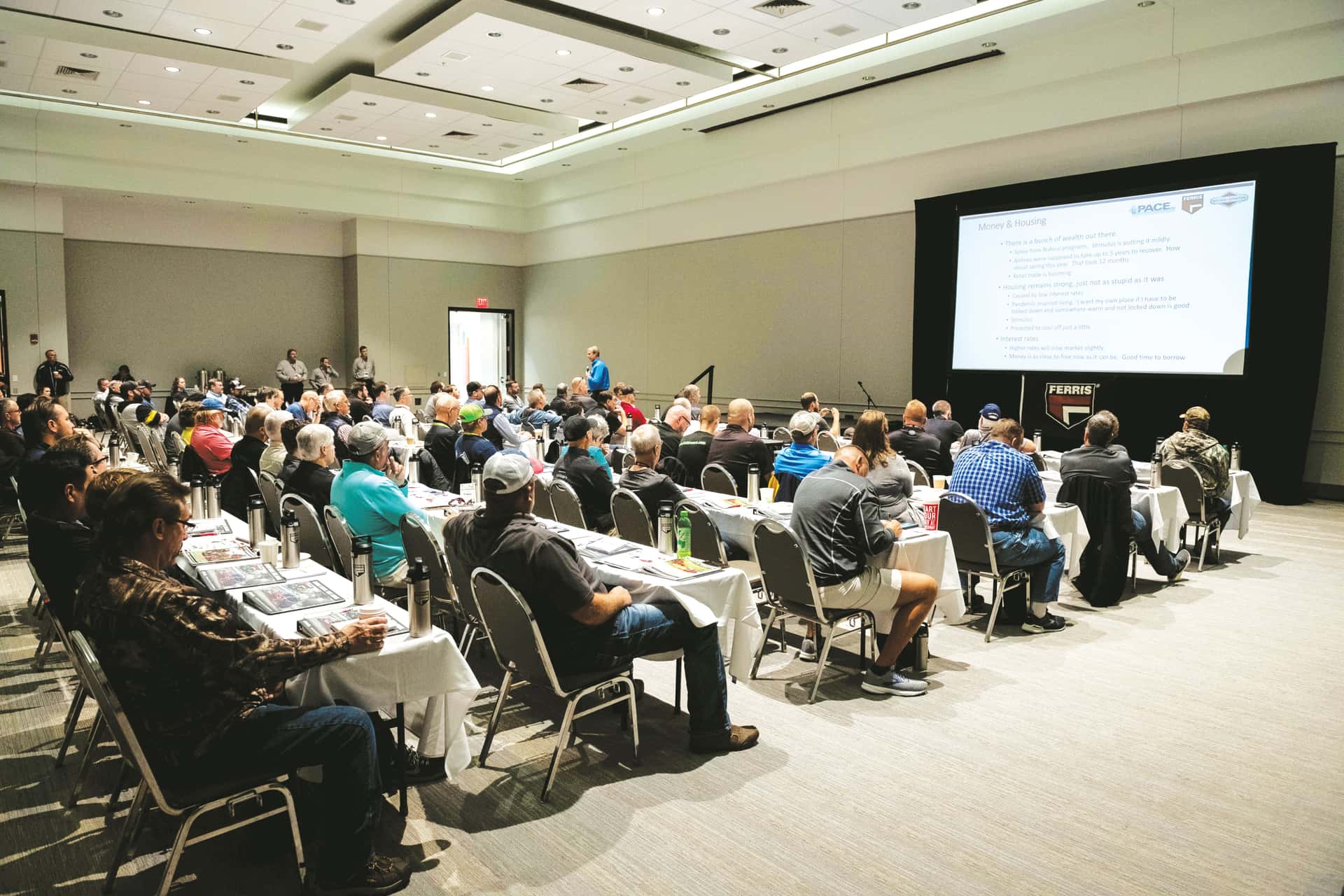Pricing for Profit
The price of service—with almost everything else—is on the rise. At Equip Exposition, attendees can learn from experts the dos and don’ts of raising prices, so customers aren’t scared away.
By Rob DiFranco
Rising fuel prices, labor costs, and rampant inflation have had an impact on landscaping companies countrywide.
That trifecta of circumstances is forcing companies to raise their prices; for many, it’s the first time in a long time.
“For years and years, nobody raised their prices; everyone was afraid to. They were afraid to raise their prices because even an incremental price could trigger potentially losing a contract,” says Phil Harwood, managing partner, Pro-Motion Consulting.
So, how do you raise prices—especially in large margins—without scaring away customers? That’s what industry professionals like Harwood will look to answer at “The Price Isn’t Right,” a seminar at the 2022 Equip Exposition on Friday, Oct. 21, from
9:30 to 10:30 a.m.
Harwood is one of the five industry pros taking part in the session moderated by Landscape Management Editor-in-Chief Seth Jones, including:
Sam Gembel, Owner, Atlas Outdoor
Steve Steele, Bruce Wilson & Co.
Phil Harwood, Managing Partner, Pro-Motion Consulting
Nada Duna, COO, Gothic Landscape
Barb Stropko, Owner, New Desert Gallery
Attendees will learn the best practices for raising prices, so customers don’t run away because of sticker shock.
Just the facts
Harwood says he has clients who have had to raise prices 30 percent from where they were a year ago. Instead of steadily increasing prices, he says the industry has worked to become more efficient over the years, but that’s not enough in the short term as the
cost of business continues to rise.
“We’ve become better and faster, but it hasn’t meant that prices have gone up. We’ve been able to hold prices and remain profitable as an industry,” he says.
Harwood has advised his clients on several approaches to the difficult proposition of increasing prices. Both center around a simple principle: Be very matter-of-fact about it.
“Everyone is expecting price increases, and anyone who is not is playing with you. If you look at gas prices, they have doubled in the last two years, the cost of groceries, take-out food, lumber, clothing, and a lot of things,” he says.
Sam Gembel, owner of Atlas Outdoor in Flint, Michigan, believes businesses who haven’t increased prices in a long time or those who pride themselves on being “value-driven” contractors might face the hardest climb in increasing prices.
“The companies that have built their brands on being more value-driven contractors, I feel like those are the ones experiencing the toughest transition. Because people are just not used to them coming and saying, “I need more of an increase,” says Gembel.
Gembel’s company rewrote contracts and considered a fuel surcharge on invoices. With the uncertainty surrounding gas prices, he foresees another potential price increase coming soon.
“At first, we weren’t thinking too deeply about doing a surcharge, whereas now it’s like we went and rewrote hundreds of contracts to increase pricing, and now it looks like it might happen again,” he says.
Like Harwood, Gembel is well aware customers are also facing a squeeze with the increase in the price of gas and goods and how difficult that can make the prospect of asking them to pay more.
“We’re just trying to be mindful about it. We don’t want to scare people into saying, ‘Do I want to work maintenance and fertilizer services out of my budget?’” Gembel says.
Atlas Outdoor has continued to try to find ways to be more efficient, Gembel says. Strategies include studying route density, tightening its service area, and increasing daily revenue goals. Gembel hopes those practices will help keep his business on its upward trajectory throughout the ongoing squeeze.
The author is Associate Editor of Landscape Management magazine.
Subscribe to equip Magazine
To receive a digital version of equip magazine, please provide your email address.
